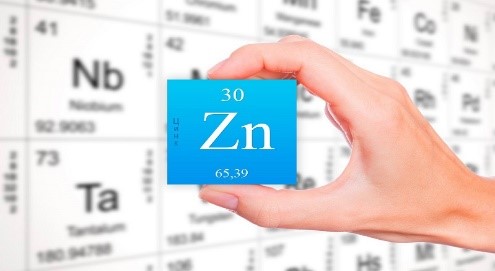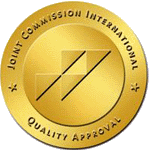Zinc - why there is a deficiency and how to make up for it

Zinc (Zn) is an essential element for the healthy functioning of our body. The importance of zinc is much less frequently mentioned than of vitamin D or omega-3. Zinc deficiency occurs in almost 20% of the world's population and causes internal organ disorders, deterioration of skin, hair and nails. Zinc affects the activity of sex hormones, is involved in fat, protein and vitamin metabolism, in the processes of hematopoiesis. Loss of smell and taste is one of the sure signs of zinc deficiency. This trace element is very important for men's health. Zinc is especially important for muscles and sufficient production of growth hormone, responsible for the production of testosterone. Zinc deficiency may contribute to infertility.
Zinc cannot be accumulated in the body. We need 10 to 20 mg of zinc daily to make up for its deficiency, and up to 30 mg for pregnant women.
Who is more likely to be deficient?
- vegetarians and people on a strict diet
- pregnant and lactating women
- people with gastrointestinal disease, which leads to lower zinc absorption
- people addicted to alcohol, which prevents the absorption of substances from the intestine
- people with thyroid and liver disorders
- people who are under a lot of stress
What does zinc have an impact on?
- the efficiency to fight infections
- increases antibodies and thereby strengthens the immune system, supports wound healing
- influences the activity of pituitary hormones
- fat metabolism, increasing the intensity of fat breakdown in the body and preventing fatty liver dystrophy
- normal function of pancreas and prostate glands
- slows down retinal deterioration, helps treat cataracts
What are the symptoms of zinc deficiency?
- irritability, fatigue, insomnia
- depression, predisposition to alcoholism
- skin problems: inflammation, acne, furunculosis, eczema, dermatitis, psoriasis, trophic ulcers, poor wound healing
- dull hair color, dandruff, stunted hair growth and hair loss
- loss of taste, mouth ulcers
- late puberty in children (especially boys) and stunted growth
- olfactory disturbance, decreased appetite, diarrhea
- weight loss, rapid weight loss
- white spots on fingernails, splitting
- decreased insulin levels
- copper, lead, and iron buildup
An ideal source of easily digestible zinc is animal products (meat, liver) and seafood (oysters). Zinc is also found in legumes, wheat germ, bran, sesame, and oatmeal. Pumpkin seeds, which contain 10 grams of zinc in 100 grams, are a good source of the trace element and are practically a daily dose.
In situations where the intake of zinc is insufficient, zinc supplements should be included in the diet. If the supplement is in the chelate form, it is best taken in the morning with meals. If it is other forms (citrate, sulfate), it should be better taken either 1 hour before or 2 hours after a meal, so that there is no unpleasant feelings of nausea.
Remember!
The daily dose of zinc should not exceed 1-2 tablets (pay attention to the dosage). The physiological requirement for the trace element is a maximum of 20 mg per day (unless another dose is prescribed by the doctor).
Important!
Before you start taking zinc or other supplements, you need to know if you have a deficiency of this trace element. To do this, you should have your samples taken and consult a doctor.




